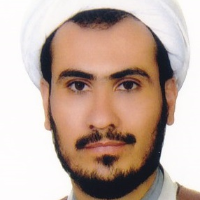Explanation of a Religiosity Assessment Model Based on a Priority System
Author(s):
Article Type:
Research/Original Article (دارای رتبه معتبر)
Abstract:
This study aims to explain a religiosity assessment model based on a priority system, conducted through qualitative content analysis. The research process began by elucidating the structure of religiosity from the perspective of Islamic thinkers and identifying the common components. These components were then systematically organized into a model centered on three main elements: belief, ethics, and rituals. The subordinate components were prioritized according to the precedence of belief over ethics and ethics over rituals, as well as other criteria for prioritization. According to the study, the structure of religiosity comprises its dimensions and indicators, prioritized as follows: the three dimensions of religiosity—belief, ethics, and rituals—are prioritized in that order. Rituals themselves are divided into three sections: social, worship, and individual, which are also prioritized in that sequence. The first rule in prioritizing the indicators of religiosity is to classify each one based on the three main components. Thus, if some indicators in religious sources were prioritized equally despite differing in status, their position was determined based on whether they pertain to belief, ethics, or rituals. In the next stage, the key components under each main element were also prioritized according to certain general and specific criteria mentioned in religious sources. Overall, within the belief component, the priorities are, in order: theology, eschatology, angels, divine books, prophethood, and Imamate. In the ethics component, the priorities are obedience, love, patience, justice, truthfulness, and sincerity. Within the ritual component, from a social perspective, the priorities are guardianship, benevolence, trustworthiness, fulfillment of promises, jihad, goodwill, and mutual support. Finally, within the rituals component from a worship perspective, the priorities are prayer, almsgiving, pilgrimage, and fasting.
Keywords:
Language:
Persian
Published:
Journal of social Cultural Studies of Hawzab, Volume:8 Issue: 1, 2024
Pages:
107 to 128
https://www.magiran.com/p2778863
سامانه نویسندگان
مقالات دیگری از این نویسنده (گان)
-
Evaluating Roberto Tuttoli's views on Prophet Shu'ayb (AS) in the Quran
*, Hasan Rezaii, Habibeh Mansouri
Journal of Religious Research And Efficiency, -
A Critical Analysis of Alexander D. Knysh’s View on the Exegetical Methods of Ghazali and Ibn Arabi
Rasol Mazraei, Hasan Rezaee Haftador *,
The Qur’an from Orientalists Point of View Qur’an and Orientalists,


